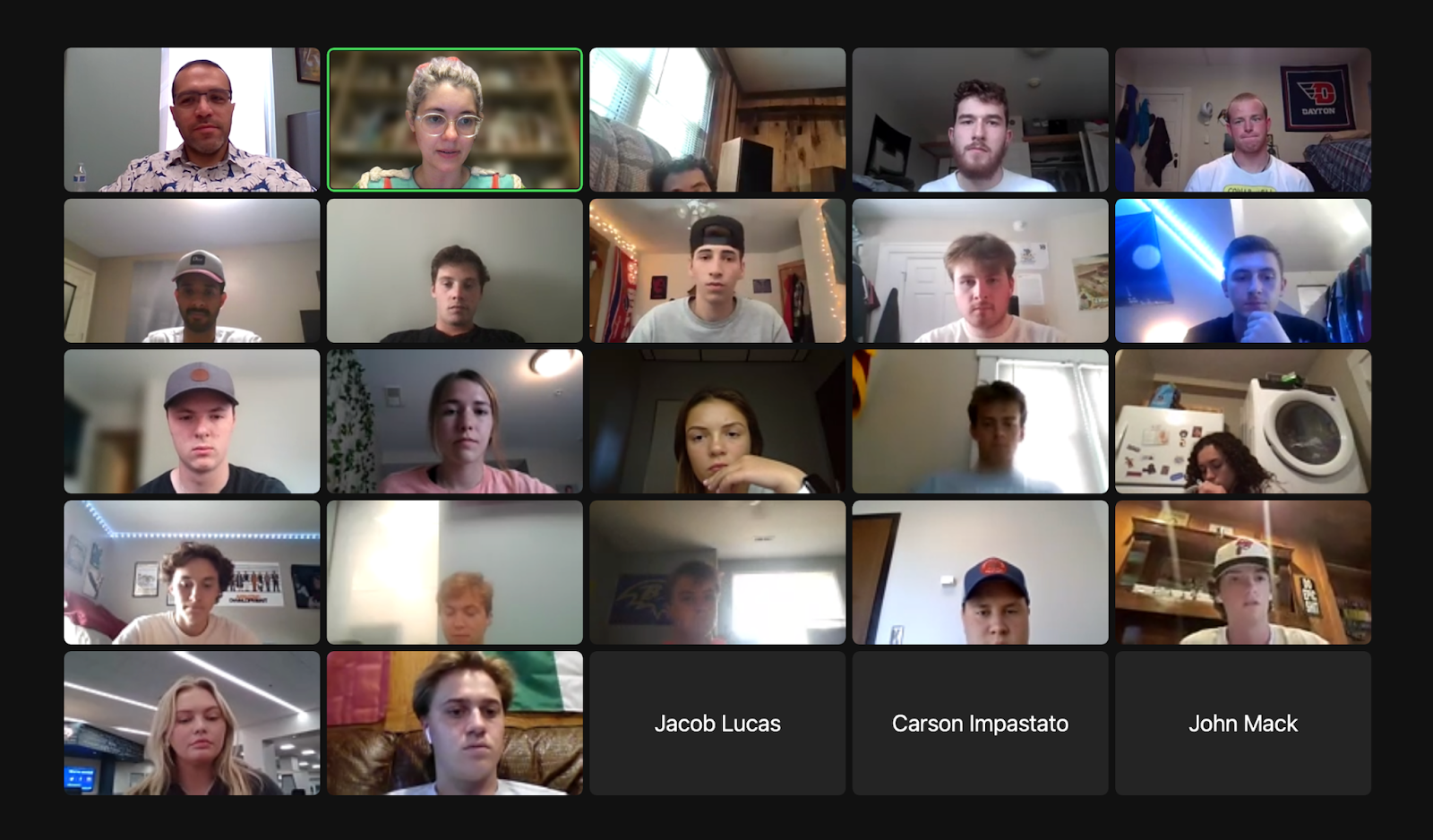Dayton, OH and Austin, TX, September 29, 2023 — The University of Dayton (Dayton, Ohio) and KNIME, the open source data science company, announced the Database Design and Implementation Challenge for Prof. Hamed Zolbanin’s students today. The students attend Zolbanin’s Systems Implementation with Database Management Systems course, offered by the university’s School of Business Administration in the Fall semester.
This new student challenge is the first co-organized by a US university and KNIME. It is also the first to focus on database systems and data warehousing – topics that can easily be tackled with KNIME, since it offers ample support for visually querying and processing data without coding. As with previous challenges, University of Dayton selects the theme, task and data, while KNIME provides guest lectures for the students, professional practical expertise and awards for the winning teams.

In this challenge, 29 students, split into 10 teams, will design and implement data management systems utilizing public datasets. The goal is to provide interactive dashboards that integrate back-end database operations with front-end data manipulations, querying and visualizations. The projects will be submitted by Nov. 26, 2023, and presented to an Assessment Committee on Dec. 4 and 6, 2023. This committee is composed of members of University of Dayton and KNIME: Prof. Hamed Zolbanin (Assistant Professor at University of Dayton), Lada Rudnitckaia (Data Scientist at KNIME), and Aline Bessa (Data Scientist at KNIME) will jointly assess the projects. The winning teams will be determined based on the accuracy, complexity, cleanness, usability and documentation of their projects.
KNIME’s open source software, KNIME Analytics Platform, has been selected as the tool of choice for the challenge thanks to its versatility, coverage and accessibility. While KNIME is popular for its data science functionalities, it also offers database management and data warehousing capabilities. This will be the first student challenge focusing on a data-related topic that is outside the classic realm of data science.
Students who participate in the challenge will have access to KNIME certification exams and books, and digital participation badges. The top three teams will also be invited to a video award ceremony and will receive trophies and gadget bags. Among other awards, the top team will win a paid summer internship at KNIME in Austin, TX.
About the University of Dayton:
The University of Dayton is a top-tier, national, Catholic research university with offerings from the undergraduate to the doctoral levels. Founded in 1850 by the Society of Mary, the University is a diverse community committed to advancing the common good through intellectual curiosity, academic rigor, community engagement and local, national and global partnerships. Guided by the Marianist educational philosophy, we educate the whole person and link learning and scholarship with leadership and service. udayton.edu.
About KNIME: KNIME software bridges the worlds of dashboards and advanced analytics through an intuitive interface, appropriate for anybody working with data. It empowers more business experts to be self-sufficient and more data experts to push the business to the bleeding edge of modern data science, integrating the latest AI and machine learning techniques. KNIME is distinct in its open approach, which ensures easy adoption and future-proof access to new technologies.
